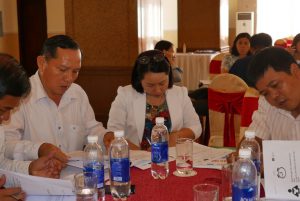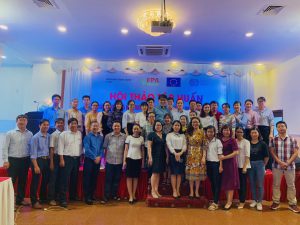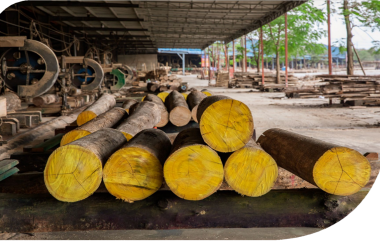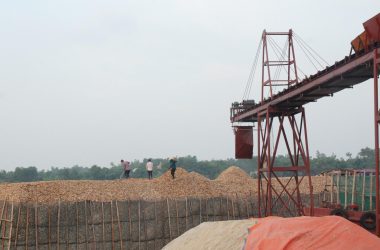A training of enterprises seminar highlights the upside for business in improving labour management practices
QUY NHON, VIET NAM (ILO News) – For many companies in Viet nam’s furniture supply chains, the business case for implementing responsible business practices has not always been front of mind. As Ly Thi Kim Truc, Human Resources Manager, Dai Thanh Joint Stock Co puts it: “I have been wondering what we should expect as benefits from implementing the CSR, where to get the budget for it and how to convince the business leaders to support the process.”
It’s a challenge too for the Government officials charged with raising awareness on Corporate Social Responsibility (CSR). Ho Thi Phuong Cham is with the Binh Dinh office of Employment and Vocational Education Unit, Department of Labour, Invalids and Social Affairs (DOLISA) asks, “How do we encourage businesses to care about industrial relations?”.
To answer concerns like these, the ILO through its Responsible Supply Chains in Asia (RSCA) programme has been training key industry representatives in the timber processing and seafood industries in CSR implementation and its benefits. These trainees are then passing on their skills to others in the field.
Two such trainers are Tran Le Huy, Vice Chairman/Secretary General of Forest Products Association (FPA) of Binh Dinh and Le Thi Thu Huyen, members of the pool of trainers developed by the ILO’s RSCA programme. Together they facilitated the workshop “Social Responsibility in Labour Management at wood enterprises ” in Qui Nhơn City, Binh Dinh Province.
Attending were 40 delegates from wood processing companies in Binh Dinh and other neighbouring provinces (Quang Nam, Hue). There were also participants from foreign companies such as TUV SUD (Switzerland), from the DOLISA, VCCI branch in Da Nang, the Federation of Labour and the Trade Union of Economic Zones of Binh Dinh Province.

For Le Thi Ngoc Oanh, Deputy Head of the Legal and Policy Department – Federation of Labour of Binh Dinh Province, the core lessons of the session hit home.
“Now we understand that CSR implementation definitely helps to strengthen the business competitiveness, meaning without it, we put ourselves (business) in a disadvantaged position. From the labour representative viewpoint, CSR implementation will create a strong foundation for developing the collective labour agreement, especially the sector collective labour agreement”
ILO Country Director, Chang-Hee Lee, was a guest presenter at the event. “For us (the ILO), the principles underpinning CSR are based on rights at work. But not everyone realises, and this is one of the aims of our RSCA programme, that promoting such rights can really benefit businesses too,” he said of the training.
Lee is also encouraged by growing CSR capacity in the industry. “We were impressed at the level of knowledge and skills of the trainers, including FPA officials. It shows both that they have the organizational and technical capacity to carry out a key advocacy role, and that technical and organizational know-how is growing in sectoral business associations.”

Among other activities, the group looked at case studies around forced labour, discrimination, harassment and child labour. It also provided a platform for social dialogue with representatives from government, business and regional unions able to compare knowledge and share best practices with other regions. Delegates began to have a clearer understanding of the value implementing CSR can add to brands and the industry.
Ly Thi Kim Truc could see a place for the lessons in her role an HR manager – “This training really helps to enrich my knowledge and helps me provide recommendations for the management of our company.”
—————————————————————————–
The Responsible Supply Chains in Asia Programme was developed by the European Union (EU) together with the International Labour Organization (ILO) and the Organisation for Economic Co-operation and Development (OECD) to enable governments, businesses and workers to communicate on challenges and opportunities relating to corporate social responsibility in six Asian countries – China, Japan, Myanmar, Philippines, Thailand, and Viet Nam. It uses as a basis for its research, outreach, policy advocacy and training internationally recognised guidelines on responsible business conduct, the OECD’s Guidelines for multinational enterprises, and the ILO’s MNE declaration.
Regions and countries covered: Asia, Viet Nam


































